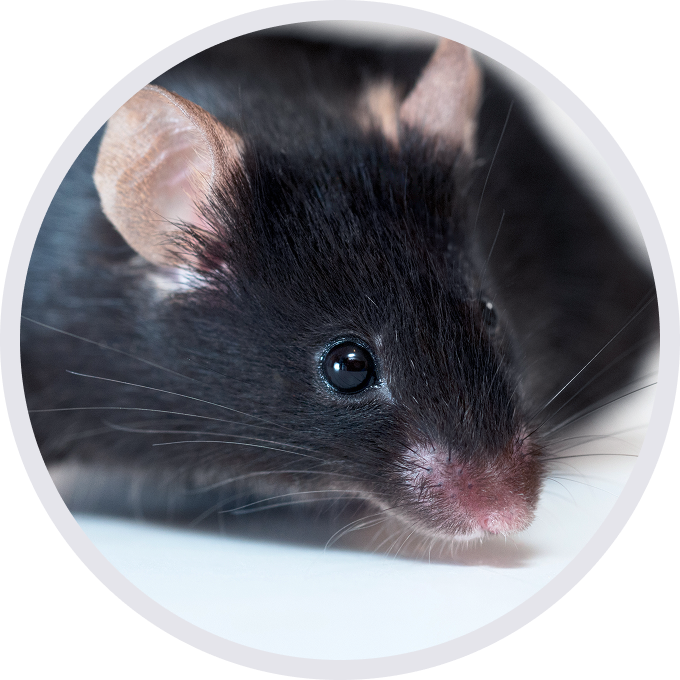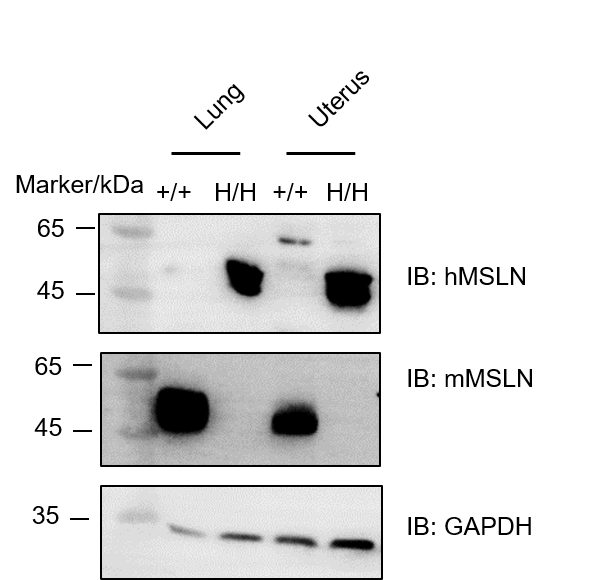
C57BL/6N-Cd28tm1(CD28)Bcgen Mslntm1(MSLN)Bcgen/Bcgen • 113293
Gene targeting strategy for B-hCD28/hMSLN mice.
The exons 2-3 of mouse Cd28 gene that encode the extracellular domain were replaced by human CD28 exons 2-3 in B-hCD28/hMSLN mice. The genomic region of mouse Cd28 gene that encodes signal peptide, transmembrane domain and cytoplasmic portion was retained. The promoter and 5’UTR region of the mouse gene were retained. The human CD28 expression was driven by endogenous mouse Cd28 promoter, while mouse Cd28 gene transcription and translation will be disrupted.
The exons 1-17 of mouse Msln gene that encode full length protein were replaced by human counterparts in B-hCD28/hMSLN mice. The promoter and 5’UTR region of the mouse gene were retained. The human MSLN expression was driven by endogenous mouse Msln promoter, while mouse Msln gene transcription and translation will be disrupted.

CD28 expression analysis in wild-type mice and homozygous B-hCD28/hMSLN mice by flow cytometry. Spleen T cells were collected from C57BL/6 mice (+/+) (Female, 6-week-old, n=2) and B-hCD28/hMSLN mice (H/H) (Female, 6-week-old, n=2). Cells were stimulated in vivo via intraperitoneal injection of 7.5 μg/mouse anti-CD3ε antibodies (anti-mouse CD3ε: clone 145-2C11, BioXCell BE0001-1; anti-human CD3ε: clone OKT3, BioXCell BE0001-2) for 24 hours. Protein expression was analyzed with anti-CD28 antibody (anti-mouse CD28: Biolegend, 102105; anti-human CD28: Biolegend, 302912) by flow cytometry. Human CD28 was detected in homozygous B-hCD28/hMSLN mice.

Western blot analysis of MSLN protein expression in homozygous B-hCD28/hMSLN mice. Various tissue lysates were collected from wild-type C57BL/6 mice (+/+) and homozygous B-hCD28/hMSLN mice (H/H), and then analyzed by western blot with anti-MSLN antibody (anti-human CD28: abcam, ab93620; anti-mouse CD28: abcam, ab187063). 40 μg total proteins were loaded for western blotting analysis. Human MSLN was detected in lung and uterus of B-hCD28/hMSLN mice.